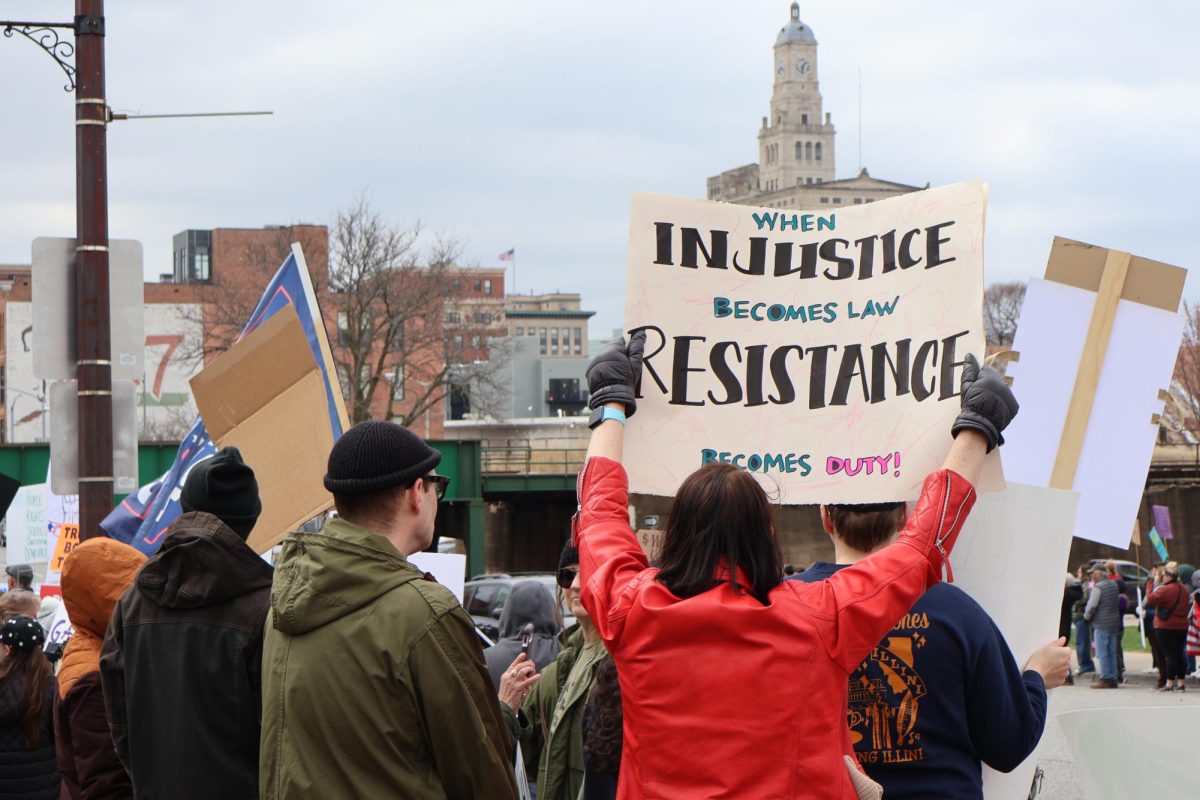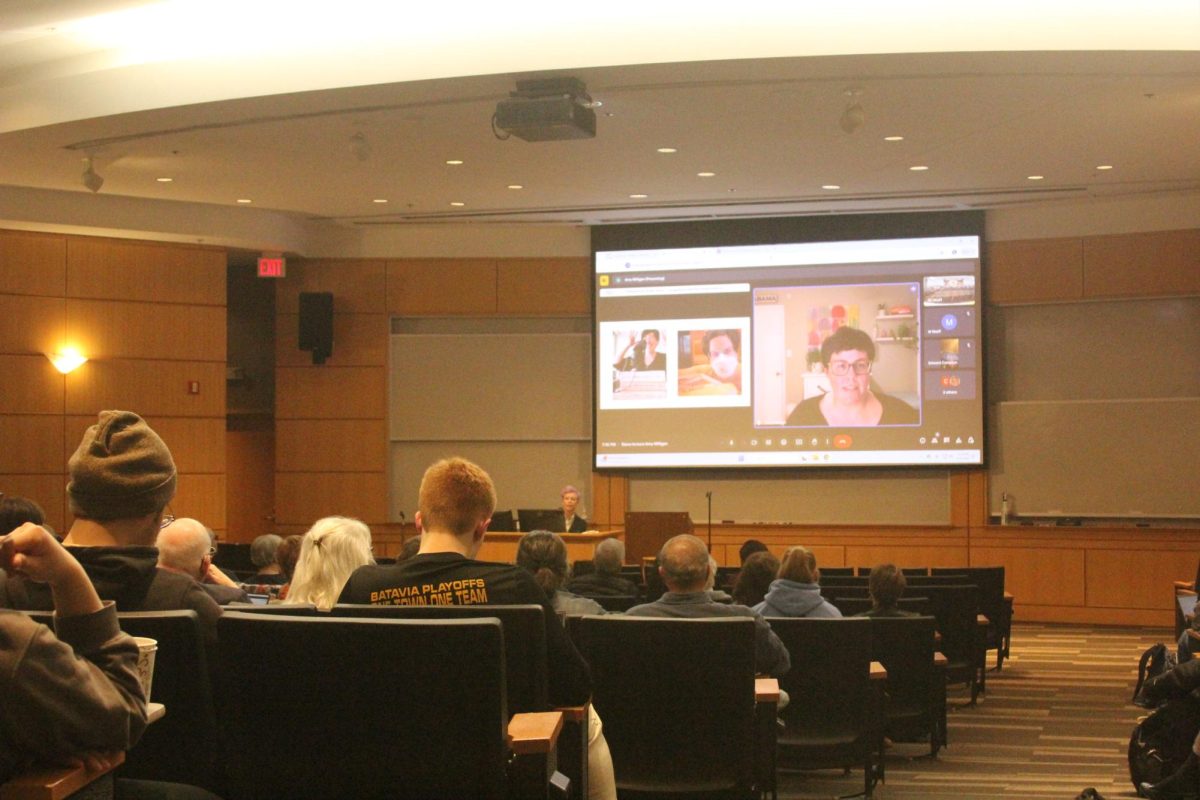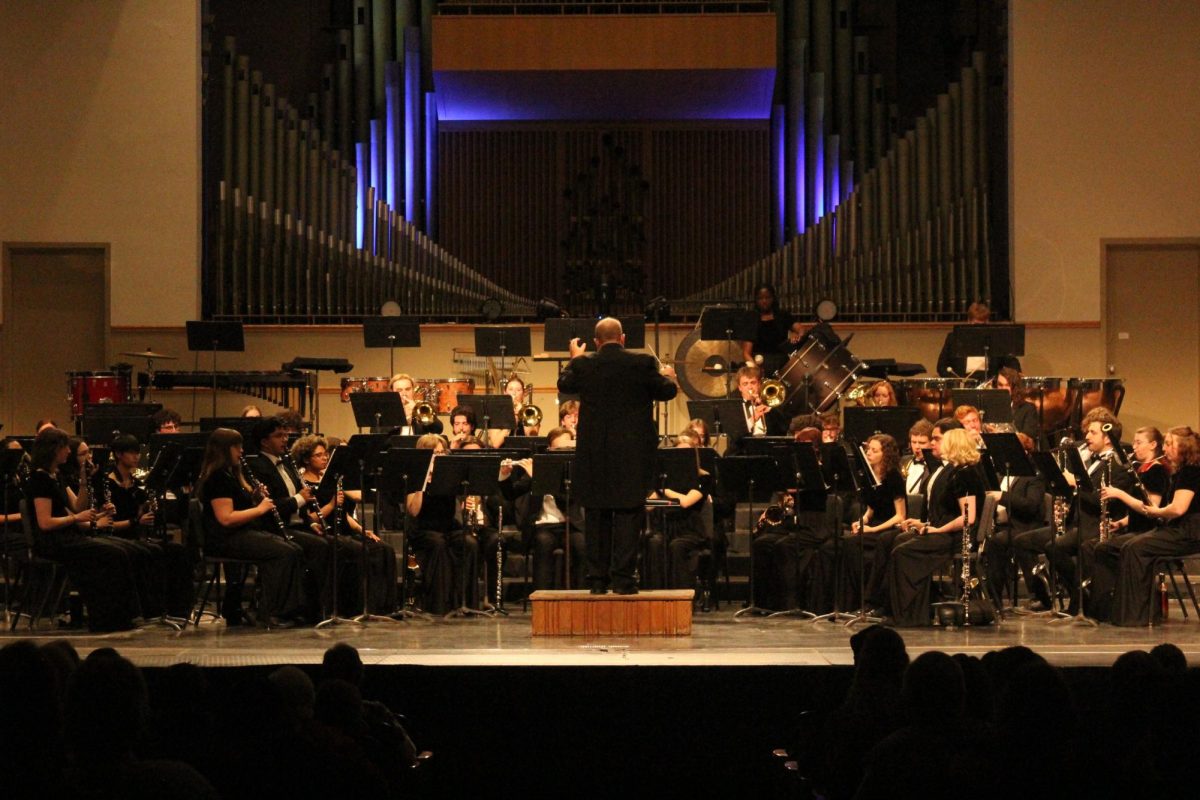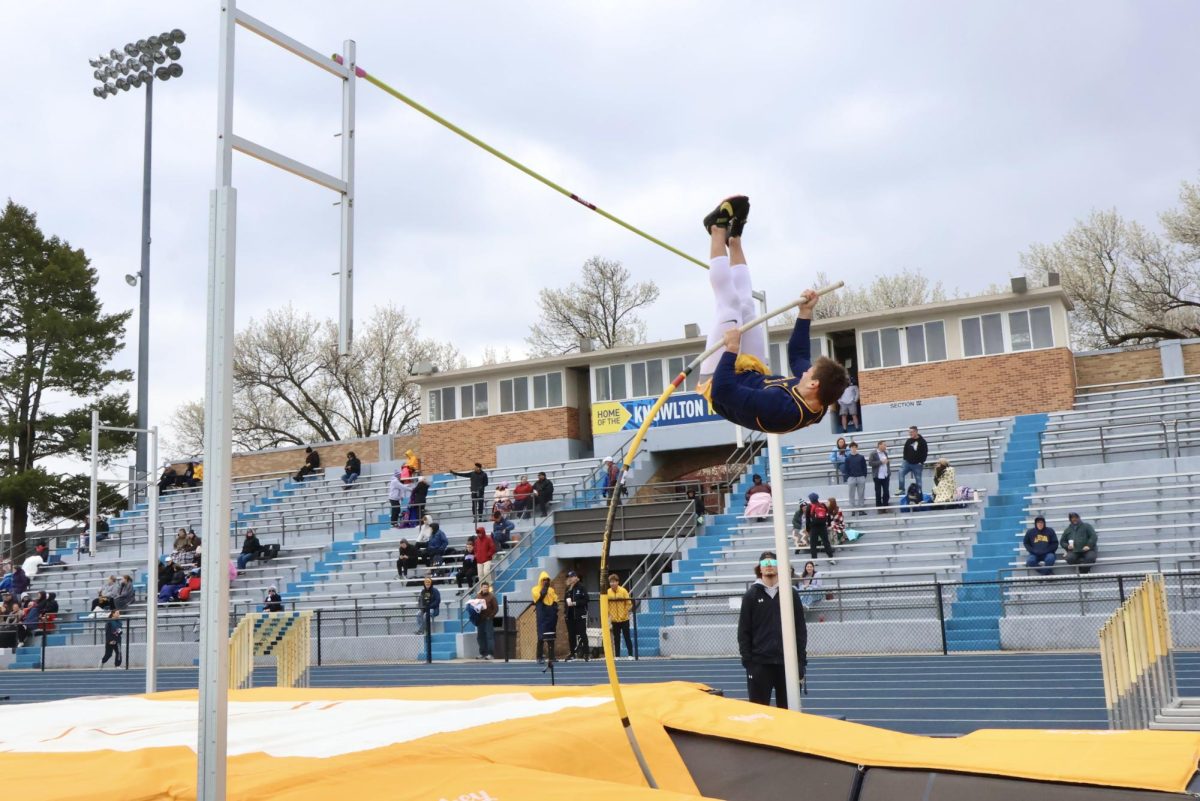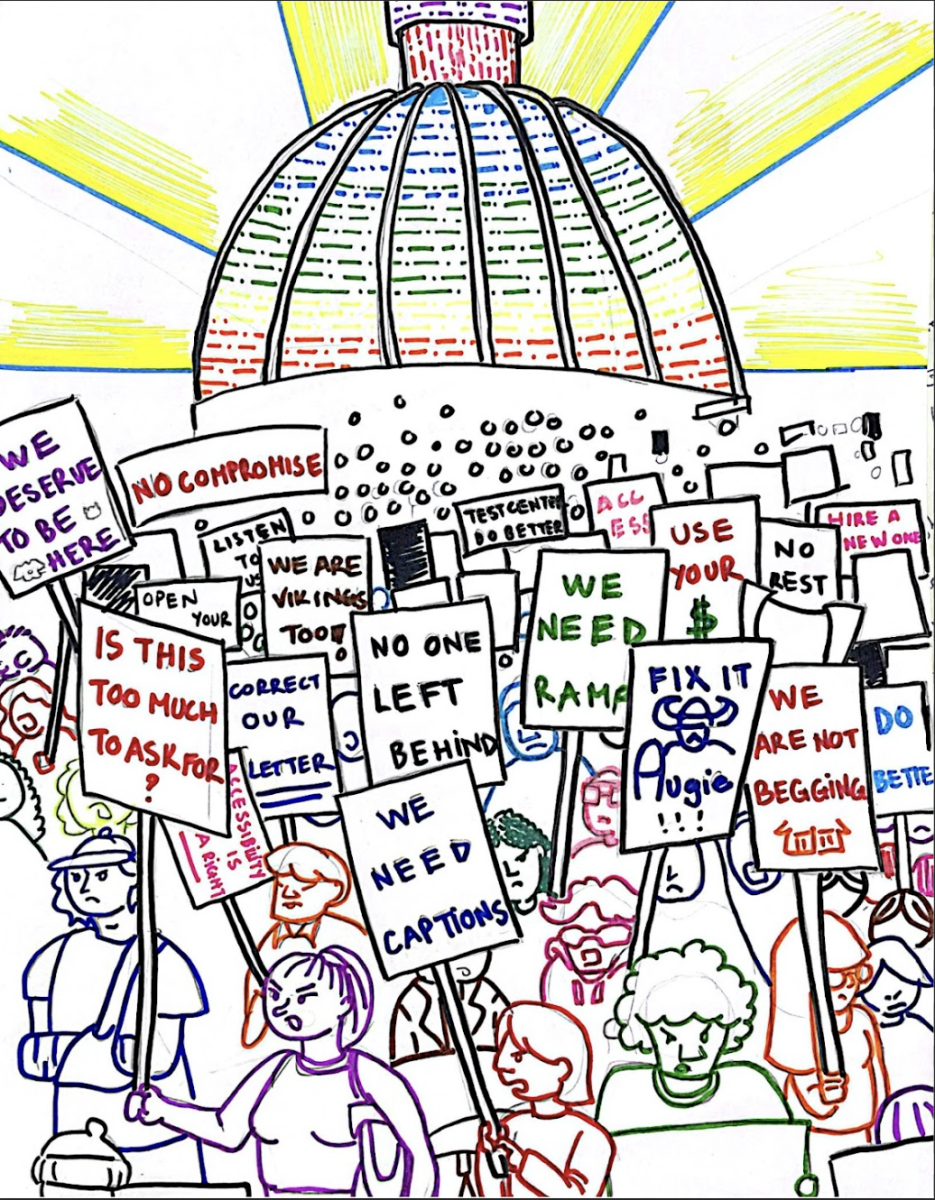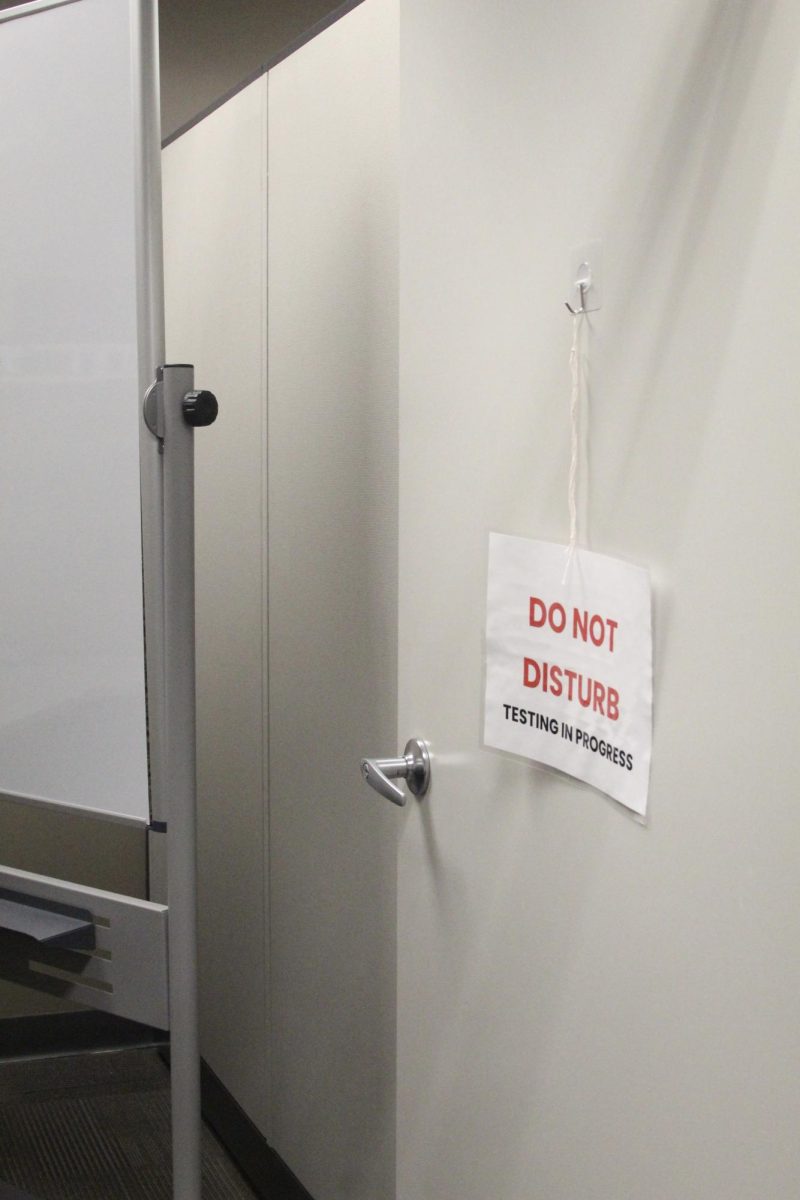In the midst of classes, exams and preparing for the transition to college, Delaney Walsh received her diagnosis of Stargardt’s disease during her junior year of high school.
Stargardt’s is a genetic eye disease causing vision loss. Although other family members were previously diagnosed with the same disease, Walsh had already been late in her teenage years without any symptoms. With no current cure, Walsh was pushed into the sudden change of going from having her full vision to blindness in the center of her eye.
Now a senior at Augustana, Walsh said that one of the largest hurdles coming into the college as a new student was having to seek out her own accommodations.
“One thing that the school pushed on students was to self advocate so you can do it in the real world, when in reality, there are so many steps put in place in the real world to help people who have a disability,” Walsh said. “Going through Augustana truly blind was a tough process.”
Walsh’s accommodations give her a space to complete tests away from classmates, where she can use her digital magnifier more conveniently.
“Sometimes I click it on and off to save the battery life, and it also has a flashlight on it, which can both be a distraction to others,” Walsh said. “But sometimes I’m also not comfortable using it. I’m thinking, “Oh my gosh, are they looking at me? Are they thinking things?”’
The rest of her accommodations are harder to enforce or keep consistent.
Because Augustana tries to teach students how to search for their own accommodations, she must work out her own accommodation plans with each professor on an individual basis. While this has helped grow her confidence, Walsh said that it is difficult to approach each professor and expect them to know how to help her.
“A lot of my accommodations are ones where I just have to talk with my professor,” Walsh said. “And nine out of 10 times, they are very accommodating and willing to work with me, regardless of my accommodation letter, but I can’t say all. Most professors have kind of gone on their own path to helping me regardless of disability services.”
Without homogenous accommodations implemented into each classroom, the support that Walsh has received throughout Augustana has varied.
Having to rely on professors instead of only Augustana’s disability services, there is an added expectation on professors to accommodate students, despite a lack of training or education on how to effectively help students.
“I feel like professors are never given that opportunity to be educated on different disabilities, so their first line of education is the student,” Walsh said. “It’s a learning curve, whereas it should just be like an automatic “Yes, I know what you need.” The accommodation letters are still good because everyone has different needs and it gives proof that you have a disability. But just that baseline education is one of my first steps in changing things.”
When it comes to the future of accommodations for Augustana’s disability services, professor of communication sciences and disorders Catherine Webb suggests that schools start implementing “Universal Design for Learning (UDL)”.
UDL is an educational framework based on learning sciences that focuses on designing a more accessible learning style for all students, regardless of disability or background.
“It comes from architectural theory, actually where they thought, maybe we should make things so that all people can access them. And they are thinking about buildings, which is also important,” Webb said. “But we’ve kind of adapted it for education in a way that we could set up our classes in the first place in a way that the largest number of people have access to so we don’t have to make special accommodations because it’s already a part of the way that we do things.”
UDL focuses on providing multiple means of engagement, representation and action and expression. Through these three principals, students are provided more options to individualize their education to fit their personal learning styles.
By implementing UDL, Webb hopes that inclusivity can be automatically implemented into schools for those who are often overlooked. Webb said that in her own classroom, she works to incorporate the ideas of UDL into her own curriculum.
“For example, I try to make sure that everything I share for students to read is screen reader friendly. Many people who are blind or have visual impairments use a screen reader in order to read the text for them,” Webb said. “But also people with ADHD, people with long commutes who don’t have the time to sit and read or people who’s first language is not English. The point of UDL is that there’s a whole lot of people who benefit from that one thing.”
Webb said that UDL would also implement a common expectation for classes across campus, giving professors a shared understanding of how to support students with different learning needs.
For students like Walsh, Webb said this could help strengthen the understanding between professors and students while taking some of the weight off of students to coordinate accommodations across each class.
Until a common foundation can be established across classrooms, Walsh said that educating faculty and students on disability awareness can help create a more accommodating campus.
“We need to take conversations about disability as a positive because “disability” has always had such a negative connotation to it when in reality, many people we walk past have a disability or a hidden disability like mine,” Walsh said.
